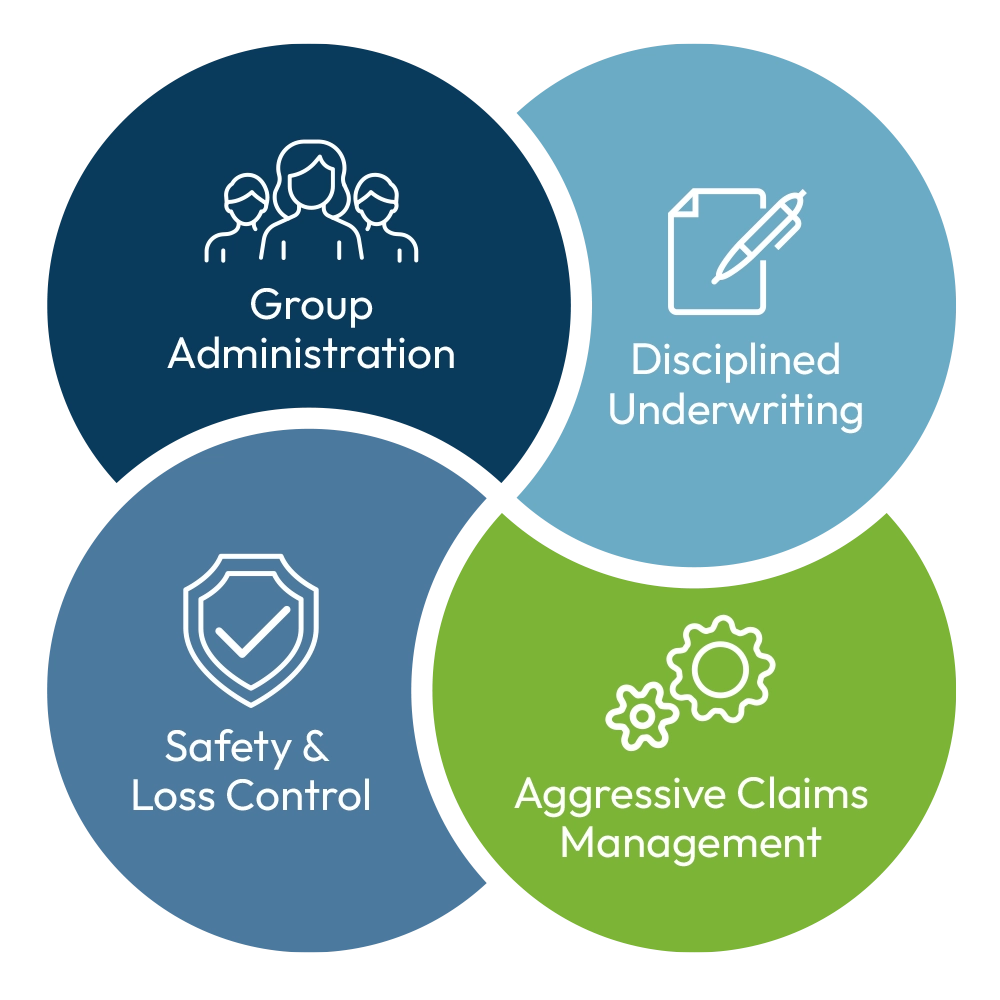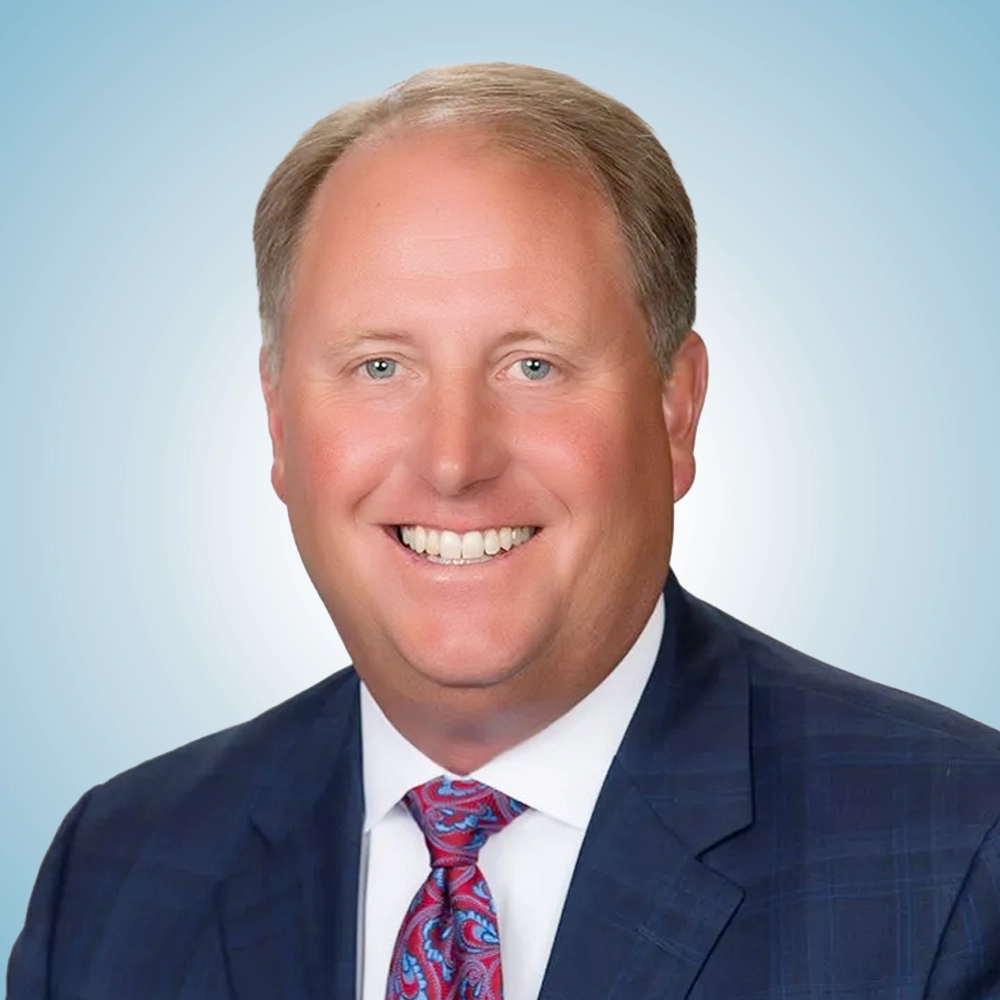PATH excels in forming and managing self-insured workers’ compensation groups.
What Is A Self-Insured Group?
Self-insurance has been a reliable and secure alternative to traditional insurance for over 108 years.
As a member-owned nonprofit, self-insured groups provide members with greater control, free from the profit-driven approach of traditional workers’ comp insurance.
For over 20 years, self-insured groups have given California employers a different option for workers’ compensation coverage. Employers in the same industry come together to form a member-owned nonprofit, overseen by a board of trustees made up of members.
The group is managed by an administrator, such as PATH and joining a self-insured group brings benefits like enhanced control, better outcomes, reduced costs, and peace of mind.
Why Choose Self-Insurance
Self-insurance is a strategic option for business owners seeking greater control over their workers’ compensation expenses.
Self-insurance allows companies to directly manage claims, improve workplace safety, and potentially lower long-term expenses. With the guidance of PATH, over 100 employers have successfully transitioned to self-insurance, unlocking significant cost savings and gaining the ability to tailor their coverage to better meet their specific needs.

Greater Control & Efficiency

Improved Outcomes & Claims Results

Lower Cost & Stability

Peace-of-mind
Our Groups
PATH’s groups consist of high-quality members.
Many members are leaders in their industries and share a strong commitment to cultivating a safety-focused culture and a proactive risk management approach. They excel at controlling losses and are dedicated to achieving bottom-line growth.

Better Living Comp, Inc.
Better Living serves the needs of the construction industry and specialty trades such as HVAC, Plumbing, Electrical, Framing, Landscaping and other closely related building industry contractors with greater control and enhanced safety which results in lower overall workers’ comp costs.

California Restaurant Mutual Benefit Corporation (CRMBC)
Established in 2004, CRMBC is the only workers’ comp self-insured group for California restaurants. Members include fine dining, casual dining, fast food, fast casual, pubs, taverns, gastropubs, franchisees, multi-unit operators, golf courses, hotels & hospitality, any business that produces cooks or serves food.

Cornerstone Comp, Inc.
Founded in 2004, Cornerstone serves churches and private schools affiliated with the Association of Christian Schools International (ACSI) and Christian Solidarity International (CSI).
Take control of your Workers’ Compensation Program with the right support and resources


The self-insured model offers tailored management to meet a group’s specific needs. When all four components are optimized and aligned, they work together to minimize risks, control costs, improve financial performance, and create a safer workplace.
Here’s how it works:
- Group Administration ensures smooth operations and regulatory compliance, while Disciplined Underwriting accurately evaluates risks and sets precise premiums, reducing unnecessary costs and maintaining financial stability.
- Safety and Loss Control proactively address workplace risks, and Aggressive Claims Management focuses on early intervention and return-to-work strategies, reducing the frequency and cost of claims.
When these four components are fine-tuned and function together, they create a system that effectively reduces risks, enhances financial outcomes, and builds a safer, more effective workers compensation program.

why should you choose path
PATH maintains a laser-like focus, with strong internal systems and controls.
- PATH is California-based, and Self-Insurance is all we do
- We are a SOC-1 Certified Administrator
- Superior program administrative support and controls
- Business intelligence, data analytics, analysis and reporting
- Executive experience with national third-party claims administrators
- Former chief regulator of California self-insurance
- Executive with the world’s largest third-party administrator
- National carrier C-Suite underwriting expertise
- More than 40 years’ experience in handling Workers’ Comp litigation
Why Self-Insured Groups (SIGs) are a Smart Alternative for Workers' Compensation
Self-Insured Groups (SIGs) can offer several advantages over traditional workers’ compensation insurance for certain businesses, particularly those looking for more control and potential cost savings. Here is how:
Self-insuring your workers’ compensation provides unparalleled control over the entire claims process, driving efficiency and cost savings. As a member owner, you have direct access to key professionals—claims adjusters, attorneys, underwriters, and executives—ensuring transparency and alignment with your company’s values. By having the right people in place, you can reduce costs, ensure employees receive prompt care, and get them back to work quickly, minimizing disruption.
This degree of control not only lowers claims costs and litigation but also fosters a healthier workplace culture, leading to greater employee loyalty. Additionally, tools like private investigators can be used to combat fraudulent claims, ensuring the integrity of the process. Being self-insured ultimately maximizes efficiency and strengthens both your workforce and your bottom line.
Unlike traditional insurance models where claims are managed by third-party insurers, self-insurance allows businesses to oversee and customize how claims are handled. This often results in faster claim resolution, as employers can focus on early intervention, injury prevention, and timely medical treatment. This close involvement of the company in the claims process also fosters stronger communication between the employer, injured worker, and healthcare provider, leading to more accurate and proactive claims management.
Self-insured employers are incentivized to focus on safety and risk management, lowering both the frequency and severity of claims, leading to quicker return-to-work outcomes and fewer long-term claims. By prioritizing efficient care and minimizing delays, self-insurance simultaneously benefits both the company and the well-being of their employees.
With direct control over claims outcomes, self-insured employers can significantly reduce costs and achieve greater rate stability. Unlike traditional insurance, where premiums fluctuate due to market conditions and insurer profit margins, self-insured groups avoid these external factors altogether.
Additionally, in a self-insured group if a member’s loss ratio increases, the emphasis is on reducing and maintaining lower losses rather than simply raising premiums. This strategy encourages members to report claims in the best interest of their employees, without fear of automatic premium hikes. By prioritizing support and solutions over penalties, self-insurance fosters a healthier, safer work environment along with greater rate stability than the traditional market.
Self-insuring workers’ compensation offers peace of mind by giving employers greater control over their claims management process, costs, and outcomes. Unlike traditional insurance models, where premiums are unpredictable and claims handling is outsourced to third-party insurers, self-insurance allows businesses to directly manage their claims. This control enables faster claim resolution, better communication with injured employees, and more efficient care, all of which contribute to a smoother and more transparent process.
Moreover, self-insured employers are not subject to the unpredictable premium fluctuations driven by market conditions or insurers’ financial performance. Instead, they can establish more consistent, stable rates over time by focusing on safety, risk management, and injury prevention. Knowing that claims will be handled with a focus on employee well-being and financial stability gives employers the reassurance that they are doing right by their workers, while also protecting their bottom line. This comprehensive approach provides long-term stability and reduces uncertainty, offering peace of mind to both employers and employees alike.











